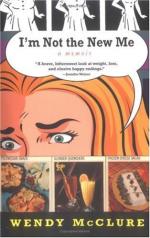He was born in the village of Mechanicsville, Saratoga County, New York, on April 23, 1837. His parents were plain people, without culture or means; one cannot guess how this eaglet came into so lowly a nest. He went out into the world at the first opportunity, to seek his fortune; he turned his hand, like other American boys, to anything he could find to do. He lived a while in New York, and finally drifted to Chicago, where we find him, in the spring of 1859, a clerk and student in the law office of Mr. J.E. Cone. From his earliest boyhood he had a passionate love of the army. He learned as a child the manual of arms; he picked up instinctively a knowledge of the pistol and the rifle; he became, almost without instruction, a scientific fencer. But he was now of age, and determined to be a lawyer, since, to all appearance, there was no chance for him in the army. The way in which he pursued his legal studies he has set down in a diary which he kept for a little while. He began it on his twenty-second birthday. “I do this,” he said, “because it seems pleasant to be able to look back upon our past lives and note the gradual change in our sentiments and views of life; and because my life has been, and bids fair to be, such a jumble of strange incidents that, should I become anybody or anything, this will be useful as a means of showing how much suffering and temptation a man may undergo and still keep clear of despair and vice.”
[Illustration: ELLSWORTH IN THE SPRING OF 1861, WHEN HE WAS A LIEUTENANT IN THE REGULAR ARMY AND JUST BEFORE HE RECRUITED THE REGIMENT OF NEW YORK ZOUAVES.
From a photograph by Brady in the Civil War collection of Mr. Robert Coster, by whose permission it is here reproduced.]
He was neat, almost foppish, in his attire; not strictly fashionable, for he liked bright colors, flowing cravats, and hats that suggested the hunter or ranger rather than the law clerk; yet the pittance for which he worked was very small, and his poverty extreme. He therefore economized upon his food. He lived for months together upon dry biscuits and water. Here is a touching entry from his diary: “Had an opportunity to buy a desk to-day worth forty-five dollars, for fourteen dollars. It was just such a one as I needed, and I could sell at any time for more than was asked for it. I bought it at auction. I can now indulge my ideas of order in the arrangement of my papers to their fullest extent. Paid five dollars of my own money and borrowed ten dollars of James Clayburne; promised to return it next Tuesday. By the way, this was an instance in a small way of the importance of little things. Some two years since, when I was so poor, I went one day into an eating-house on an errand. While there, Clayburne and several friends came in.




